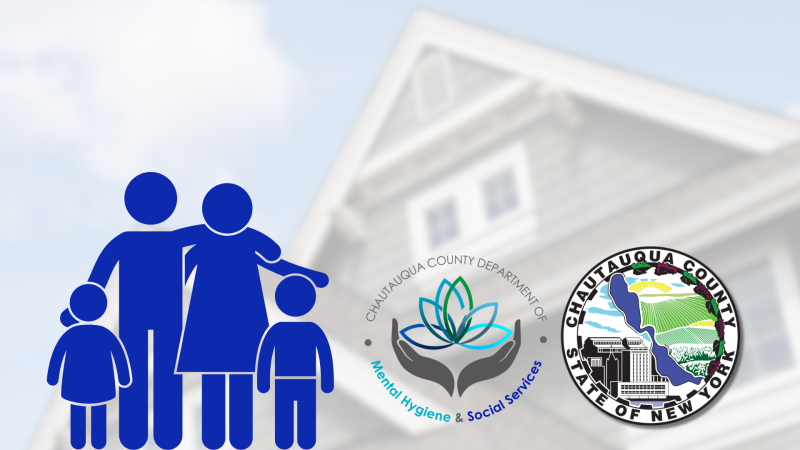Mission Statement
We are dedicated to empowering our clients to achieve self-sufficiency through personal responsibility. While recognizing the diversity of the people we serve, we will provide appropriate assessments, referrals, supportive services, and financial assistance. By delivering these services in an efficient and professional manner, we are committed to enhancing our clients' quality of life.
Office of Temporary Assistance
Temporary Assistance is Chautauqua County's term for federal and state temporary assistance programs. These programs give short-term help to families and individuals as they work toward self-sufficiency.
Code Blue
Code Blue is an emergency initiative activated during periods of extreme cold weather to protect individuals experiencing homelessness from life-threatening conditions. It ensures access to safe, warm shelter for anyone exposed to the dangers of freezing temperatures. In Chautauqua County, Code Blue is a collaborative effort involving local agencies, warming centers, and law enforcement to provide immediate assistance to those in need. For more information, please visit https://chautauquacountyny.gov/CodeBlue
Act Fast: Protect Your EBT Benefits Against Skimming Thieves
Eligibility
If you are unable to work, can't find a job, or your job does not pay enough to meet your basic needs, Temporary Assistance may be able to help you pay expenses. Eligibility for Family Assistance and Safety Net Assistance is determined based on income and resources. To find out if you are eligible you must apply.
Family Assistance (FA)
Family Assistance (FA) is New York State's term for the federal Temporary Assistance for Needy Families (TANF) Program. FA provides cash assistance to needy families that include a minor child living with a parent (including families where both parents are in the household) or a caretaker relative.
Eligible adults are limited to receiving benefits for a total of 60 months during their lifetime, this includes any TANF assistance they may have received in other states. After the 60th month has been reached, that adult and all members of his or her FA household are ineligible to receive any more FA benefits and if still eligible could receive Safety Net non-cash.
The months need not be consecutive. Each individual month in which TANF-funded benefits are received is included in the lifetime count no matter how small the benefit. The counting of this 60-month limit began in December 1996.
Parents and other adult relatives who can work must be working or involved in work-like activities with a goal of attaining self-sufficiency.
Safety Net Assistance (SNA)
If you are not eligible for other assistance programs, you may be eligible for SNA. SNA is a state- and local-funded program for:
- Single adults
- Childless couples
- Children living with a caretaker other than a parent
- Families of persons abusing drugs or alcohol
- Families of persons refusing drug / alcohol screening, assessment, or treatment
- Persons who have exceeded the 60-month limit on assistance
- Non citizens who are eligible for temporary assistance, but who are not eligible for federal reimbursement
Generally, you can receive cash SNA for a maximum of two years in a lifetime. After that, if you are eligible for SNA, it is provided in non-cash form, such as a voucher. In addition, non-cash SNA is provided for families of persons abusing drugs or alcohol and families of persons refusing drug/alcohol screening, assessment, or treatment and families who have received Family Assistance for 60 months.
Services and Assistance Programs for Non-Parent Caregivers
Non-Parent Caregivers who are caring for children without a parent living in their home may be eligible for Temporary Assistance and/or Other Services. For more information about Programs that you may be eligible for click on the link below.
Service and Assistance Programs for Non-Parent Caregivers
Indigent Burials
The local district provides for burial when a Temporary Assistance recipient or other indigent person dies leaving no funds or insurance sufficient to pay the cost and there are no relatives, friends or other persons liable or willing to take responsibility for the burial expense.
Family members or friends of the deceased must complete the Temporary Assistance application and submit the application to the Department of Health and Human Services Temporary Assistance Division. An interview must be conducted prior to funeral arrangements being made. When an application is accepted all resources of the deceased shall be investigated, including the ability of legally responsible relatives to pay the cost of the burial. Resources of the deceased must be applied to the cost of the burial prior to payment by the Department of Health and Human Services.
**************************************
Social Services is seeking Indigent Burial Services Proposals. More info








